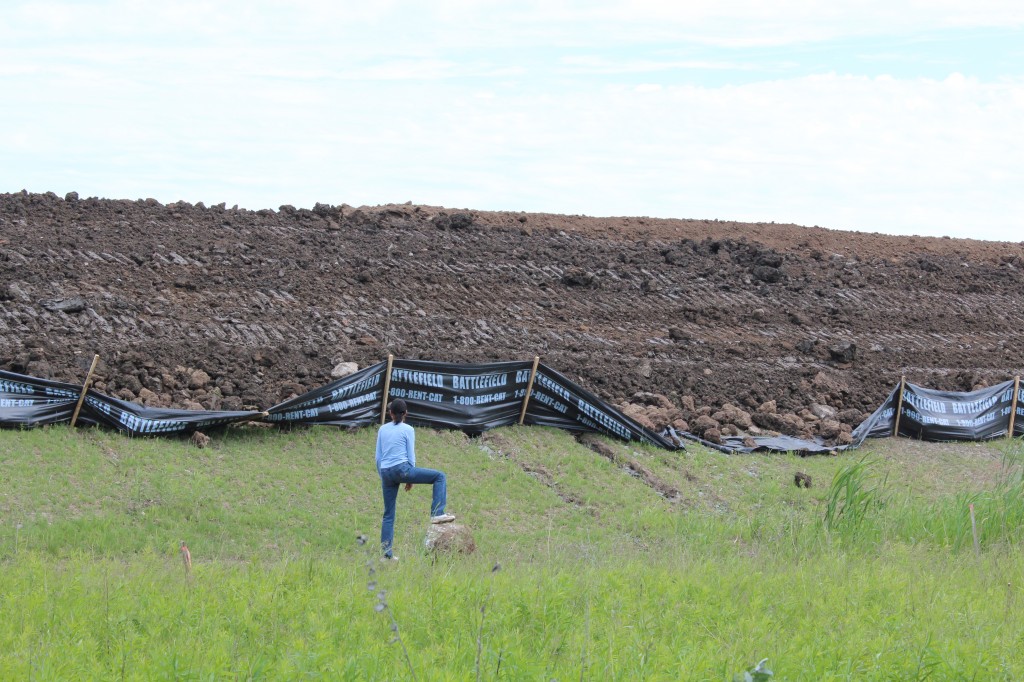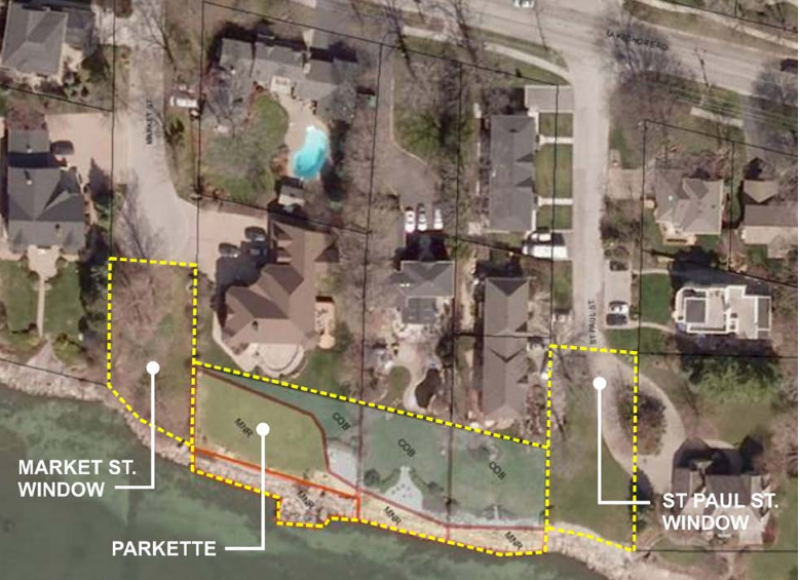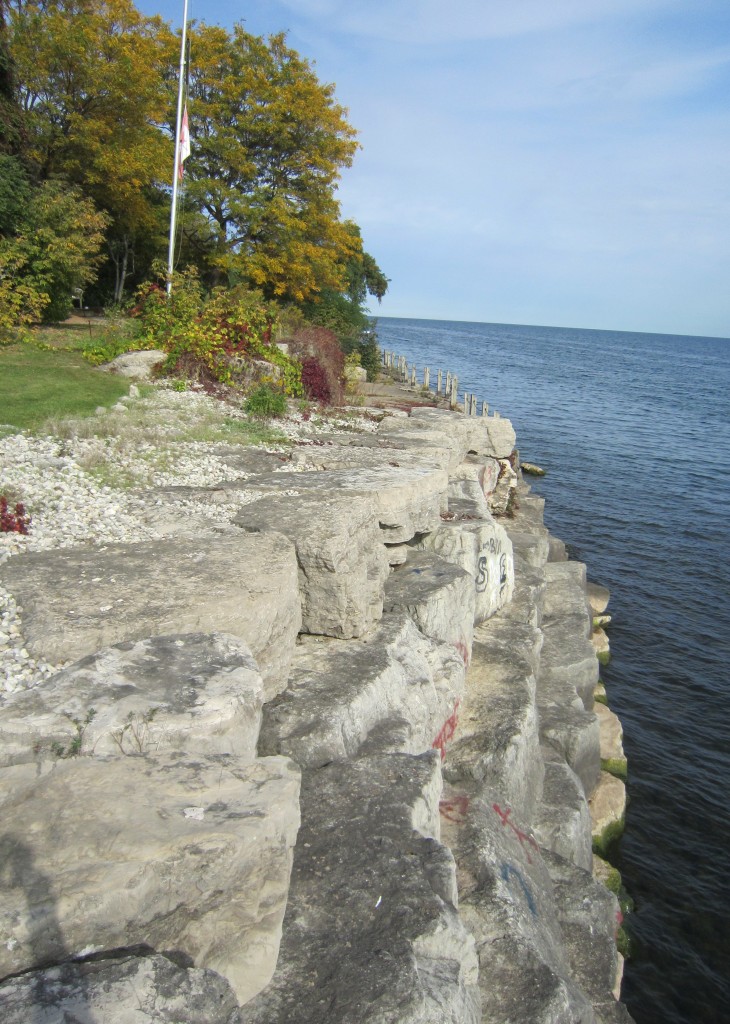By Pepper Parr
Burlington, ON. January 4, 2014
This is the time of year when everyone thinks about the year that came to an end and the year that we are now into. How did I do? Can I do better next year and how will I do that?
What did Burlington as a city do right and what did it get really wrong. Just one of each.
The city’s best decision: Deciding to take on the Burlington Executive Air Park and their blatant attempt to use federal regulations as an argument for not adhering to municipal bylaws.
The city’s worst decision: The decision to sell a small strip of land along the edge of Lake Ontario that runs between St. Paul and Market Streets to private interests.
The best: While both the city and the Regional government should have been on top of these problem years ago, Burlington is at least doing something about the problem now. The Region is still dragging its heels on this one.

Somehow the owners of the Burlington Executive Airpark convinced everyone that his plans came under federal jurisdiction and that the city had no say in what they chose to do. This location was to be the site of a helicopter operation. The owner of the adjacent property is standing on her property line.
While north Burlington residents have been complaining for some time about the problem related to literally hundreds of trucks taking land fill into the air park property on Appleby Line and dumping it they weren’t getting much in the way of response or satisfaction from city hall or their Council member..
It was when Vanessa Warren formed the Rural Burlington Greenbelt Coalition and delegated to Burlington’s city Council and then to the Region that things began to happen. City Manager Jeff Fielding had no time for a lawyer trying to instruct the city on where they were wrong and General manager, Infrastructure and Development, Scott Stewart had no time for organizations that refused to follow the city`s bylaws.
It took the city administration a bit if time to get a handle on the scope and scale of the problem and to get a clear picture of the kind of corporation they were dealing with, but once the think part of the job was done – it didn`t take long for the city to move with considerable force and dispatch. Within months the city and the Executive Air Park were in a court room to determine just what the legal issue was and then set a date with Justice John Murphy who listened to three hours of arguments. A number of weeks later he issued a decision stating that Burlington`s site plan bylaw was valid and had to be adhered to by the Air Park – and then he dinged the Air Park for $40,000 in costs.
The ink wasn`t dry on Justice Murrays decision before the Air Park filed an appeal. That appeal will take some time to be heard in the late spring at best. It may well go to the Supreme Court of Canada. It is a critical decision if Burlington is to control the kind of development that takes place in north Burlington. Vince Rossi can build an airport up there – but he will have to follow the rules and work with the city
Rossi, owner of the Executive Air Park has a $4.5 million mortgage on the property and right now his business plan is in close to a complete shambles. Rossi took a significant risk and while the end game is not fully known, and one never wants to guess how a judge will decide an issue – there are a number of very strong reasons to believe that the city of Burlington will prevail and the Air Park will have to comply with the bylaw which will mean significant scaling back of the 30 foot plus piles of landfill.
A bigger concern to the city is – what happens to the air park should the city win the case? Does all the landfill have to come out? What kind of an air park will be left. Something to think about.
The worst decision the city made was agreeing to sell a number of small pieces of property, some owned by the city other pieces owned by the province to three property owners with house that are at the edge of the lake.
Burlington takes great pride in its waterfront and part of its plan is to put as much of the waterfront property in the hands of the public. The city is now part of a process that is intended to purchase 30 homes currently in Beachway Park, see them demolished and the land cleared for a public park.

The city would create two parkettes on the extreme east and west side of the lands shown. The part in the center, outlined in a yellow dotted line is a combination of land owned by the city and the provincial government. There are three property owners with homes adjacent to that portion. The one on the left and the one on the right consists of two homes between Lakeshore Road and the water’s edge. The one in the center will become one of the most valuable sites in the city should the sale of the public lands actually go through. That owner will have a piece of land that goes from LAkeshore Road to the water’s edge.
At one point the city had a Waterfront Access Protection Advisory Committee (WAPAC) that did some sterling work on opening up small parcels of land the city already owed for public use. Little did they know that the recommendations they put forward would be twisted and made part of an arrangement that would see small parkettes at the ends of St. Paul and Market Streets and an upgrade to Nelson Park which is a couple of hundred yards to the east of the waterfront properties the city decided to sell.
While the selling of the land to private interests is not yet a done deal – it is being worked at and should it be made final and the land sold the opportunity for a pathway that would extend across more of the waterfront for public use will be lost forever.
The purchase of the land for one property owner will rank alongside the deal the Dutch made with the Indians for Manhattan Island. People in Burlington talk about there never being high-rise condominium development along the edge of the lake when that is what we already have in place.
The only Council ember to vote against the sale was Ward 2 Councillor Marianne Meed Ward.
The Bridgewater project is going to see a 22 storey tower go up on a piece of land that is not much bigger than the lot that will be created should the sale of public lands go through.
It won’t happen tomorrow, might be 50 years before there is major development on land the city now owns between Market and St. Paul streets – but with all that land in the hands of one owner – developers drool for opportunities like this.

That shore line and the view of the lake is a part of the birth right for every citizen of the city. City Council had no right to sell that property for once it is gone it will be gone forever.
When the city agreed to sell the land that was once part of the old Water Street – they sold a part of the birthright of the people who live in Burlington. Wiser city Councillors elsewhere in this country would die for an opportunity to do at some point in the future what Burlington is preparing to give up on.
Worst decision the city could have made. There was an opportunity to lease the land – city chose instead to negotiate the sale of the land. The private property owners will be pushing their lawyers to get this deal done before it becomes an election issue when wiser minds might get themselves elected to Council and put a stop to this stupidity.
Background:
The background on the landfill dumping.
City agrees to sell waterfront properties.















